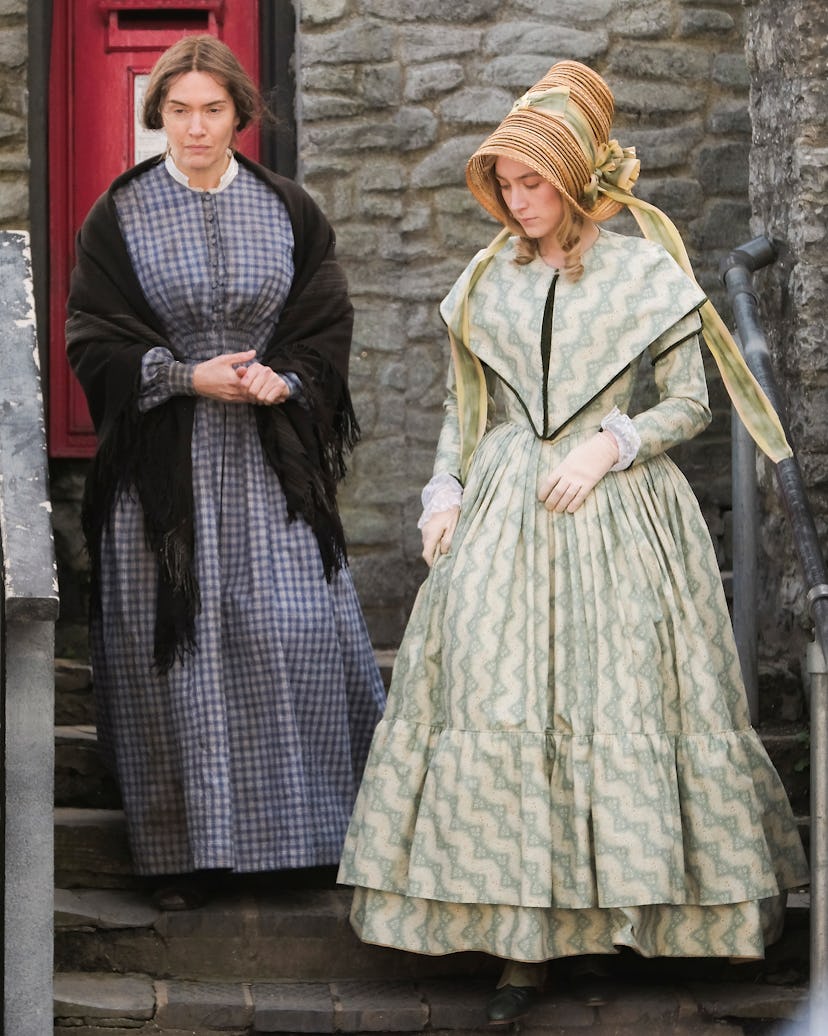Kate Winslet and Saoirse Ronan’s New Film Has Created Some Lesbian Fossil-Hunting Drama
Questions of whether the fossil hunter Mary Anning was really in a relationship with a woman prompted the director Francis Lee to set the record straight on Twitter.

It may have taken roughly 200 years, but Mary Anning, the fossil-hunting pioneer who dug up specimens and discovered dinosaurs (trendy) along the English coast in the first half of the 19th century, is at last getting her due. A new wing of the Natural History Museum in London opened in her name, recognizing what the museum referred to as her “vital contribution to early paleontology and geology”; elsewhere, shooting began this week on Ammonite, the film based on her life, starring Kate Winslet as Anning and Saoirse Ronan as Frances Bell, a young woman with whom Anning had a romantic relationship.
At least, that’s how the film tells it. Anning, as a recent story in The Telegraph points out, has no direct descendants, and preserved letters between Bell and Anning don’t offer much conclusive evidence of a romance. According to some of the late scientist’s distant relations, that doesn’t really matter: “As long as it’s well presented and tastefully done,” one told The Telegraph, “then I think it’s brilliant.” Another, however, refers to the plot decision as “producing a film for market trends”; while another, in an online discussion forum exhumed by The Telegraph, wrote that “if Mary Anning was gay then she should be portrayed as gay and this should also be a gay actress,” but given that there is little “evidence to back up portraying her as a gay woman,” she suggested that the film stick to the “abuse” Anning faced as a result of her known identity.
This gained sufficient traction that the filmmaker Francis Lee, the director of the standout 2017 film God’s Own Country, responded on Twitter on Sunday. “After seeing queer history be routinely ‘straightened’ throughout culture, and given a historical figure where there is no evidence whatsoever of a heterosexual relationship, is it not permissible to view that person within another context…?” he wrote. “As a working class, queer film maker, I continually explore the themes of class, gender, sexuality within my work, treating my truthful characters with utter respect and I hope giving them authentic respectful lives and relationships they deserve.”
In some ways, an embellished historical narrative can be richer, and truer, than one that hews exclusively to the historical record—especially considering that the historical record is so often laid down by those who hold power, leaving behind only roughly drawn portraits of marginalized, discriminated-against figures, much as a lesbian working-class woman in a fledgling scientific field would have been. Think, for example, of The Favourite, Yorgos Lanthimos’s 2018 film that imagines relationships between Queen Anne and the ladies of her court. One wouldn’t think of The Favourite as a biopic, but as a historical drama it redraws gender and power dynamics through the lens of the royal court. With Kate Winslet and Saoirse Ronan in the leading roles, Ammonite could end up being a fitting treatment for the life of a woman who, as Lee put it in his Twitter thread, was “subjected to the worst aspects of patriarchy, class discrimination and gender imbalance.”